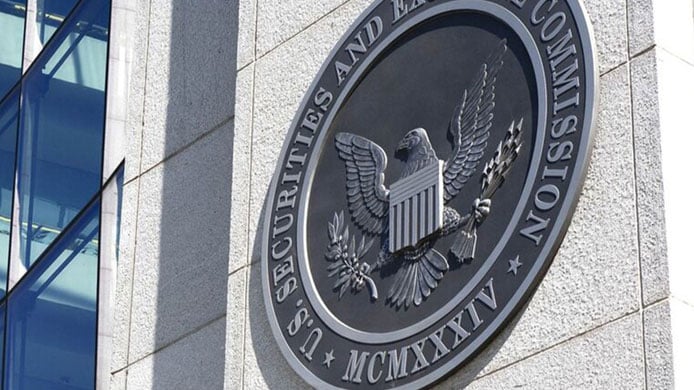Investment Funds Explore Name Changes as SEC Takes Aim at Greenwashing
November 15 2023 / 2 Minute Read
Ethical investing has soared in popularity as awareness of environmental, social and governance (ESG) factors has grown among both retail and...
Our Capabilities
We believe the financial services ecosystem should seamlessly interconnect, without compromising quality or cost efficiency.
DataXChange
Fast-track your transformation and innovation with BetaNXT DataXChange, our cloud-based, real-time data management platform.
Who We Serve
BetaNXT invests in platforms, products, and partnerships to accelerate growth for the ecosystem we serve. Our connective approach empowers clients to deliver a comprehensive, front-to-back securities processing, tax, and investor communications solution.
Who is BetaNXT?
We invest in platforms, products, and partnerships to accelerate growth for the ecosystem we serve. Our connective approach empowers clients to deliver a comprehensive solution.
Leadership TeamEngage With Us
Shareholder reports are changing. New rules, introduced by the Securities and Exchange Commission (SEC), require open-end mutual funds, including exchange-traded funds (ETFs), to produce concise, visually engaging and – critically – personalized annual and semi-annual shareholder reports. Closed-end funds will continue to rely on Rule 30e-3.
The move is part of the SEC’s ongoing efforts to modernize and simplify disclosure requirements for investment companies and improve the transparency and accessibility of information for investors.
Here are 5 key facts about how the new rules affect fund companies.
TSRs provide succinct, easily comprehensible, and visually engaging content about fund investments. A TSR will typically be two to three pages in length, include a summary of key information that investors need to make informed decisions, and present information about fund performance, fees and other key facts.
In addition to brevity and a more visually engaging design, TSRs must be tailored to the needs and sophistication of retail investors. An important factor for funds with different shareholder classes is that reports will have to be prepared separately for each series and share class of a fund, and shareholders will only receive a shareholder report for the specific series and share class that the shareholder is invested in.
The fund’s report must include a brief plain-English statement that certain additional information is available on the fund’s website with instructions on how shareholders can request such information. In a change from recent moves to digitize communications, note that TSRs should be mailed to investors by default. eDelivery requires consent, although pre-existing consent is accepted.
The rule came into effect on January 24, 2023, but an 18-month transition period occurs before compliance becomes mandatory. That means the final deadline for TSR adoption is July 24, 2024.
A significant provision through the transition period is that the details in the rule concerning misleading representation of fees and expenses have been effective from the start, i.e., since January 24, 2023.
The SEC’s rationale is that TSRs will make it easier for non-professional investors to quickly and easily access important information about their investments without having to wade through lengthy, jargon-filled documents. The average length of shareholder reports before this rule was 134 pages.
The SEC hopes that TSRs will increase retail investor engagement and satisfaction by providing them with the information they need in a format that is easy to understand and digest. This falls into the SEC’s moves to improve disclosure requirements for investment companies as part of its broader mission to protect investors and ensure that they have access to the information they need to make informed investment decisions.
Although TSRs are intended to help retail investors, those who are accustomed to long-form reports may have questions about the reasons for the change and where to access the additional information previously available in the shareholder reports. Much of that information will now be available in the fund’s Form N-CSR filing. Funds will need to make this information available to shareholders on their website and deliverable to shareholders upon their request.
The SEC does not require funds to communicate the change to TSRs in advance, but funds may wish to mitigate concerns by including guidance for investors as TSRs are rolled out.
The benefits of TSRs include increased transparency, better understanding of investment risks, and more informed decision-making. Funds may see advantages from improved communication with investors and enhanced shareholder engagement.
However, challenges may occur in the implementation of TSRs as funds determine the appropriate level of customization and introduce processes to ensure accuracy. Some additional costs to generate and mail TSRs are likely.
Mediant, a BetaNXT business, is always ready to provide personalized advice for clients as they adapt to new regulations, including the TSR rule. More broadly, we are actively working with the industry to:
To find out more about tailored shareholder reports, please contact us.

November 15 2023 / 2 Minute Read
Ethical investing has soared in popularity as awareness of environmental, social and governance (ESG) factors has grown among both retail and...

November 16 2023 / 3 Minute Read
In a move that promises to reshape the landscape of the financial industry, the U.S. Securities and Exchange Commission (SEC) has finalized a...

September 30 2022 / 1 Minute Read
Americans are online more than ever these days, including more than 93% of adults, according to the Pew Research Center. What’s more, results from a...